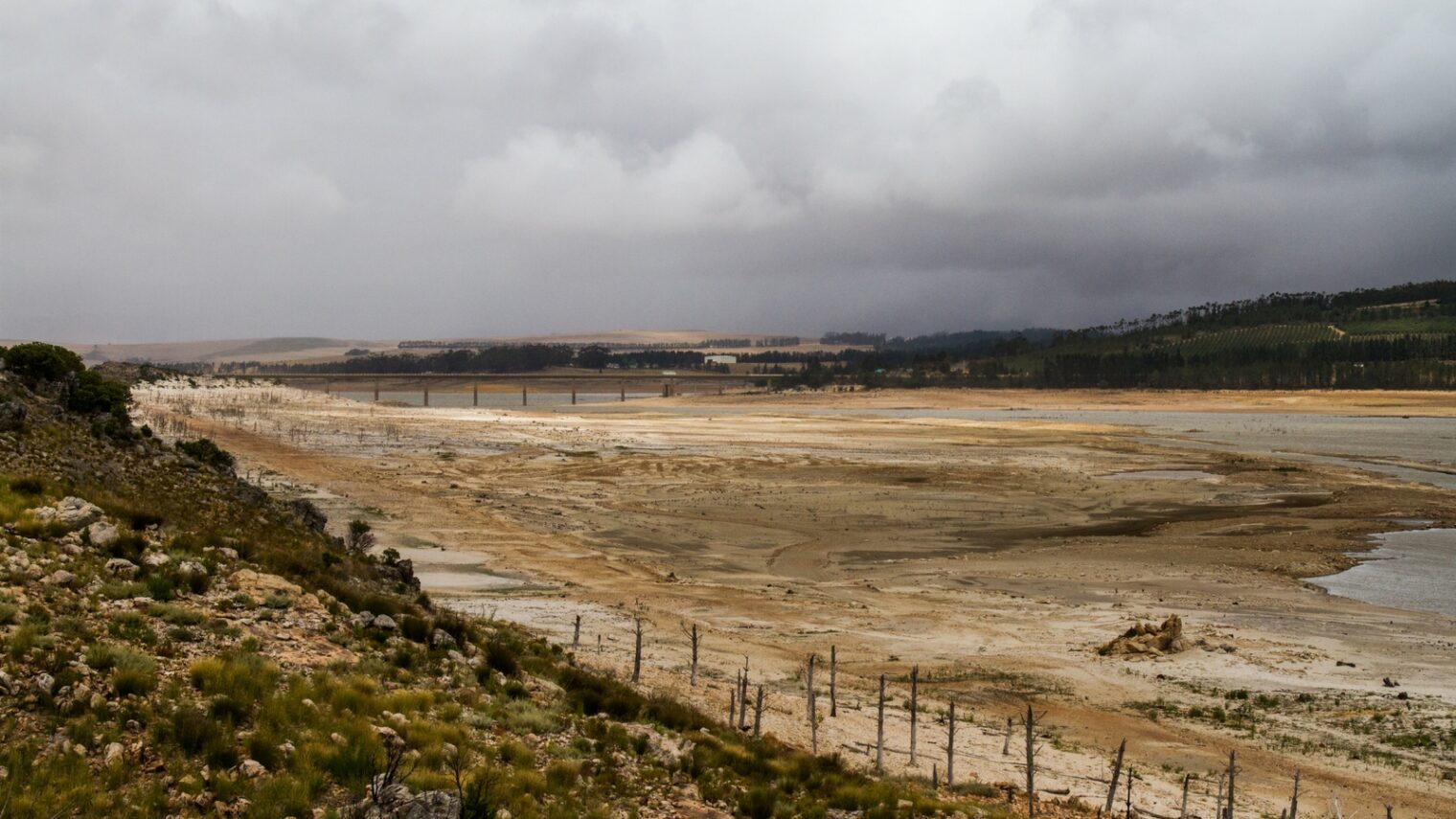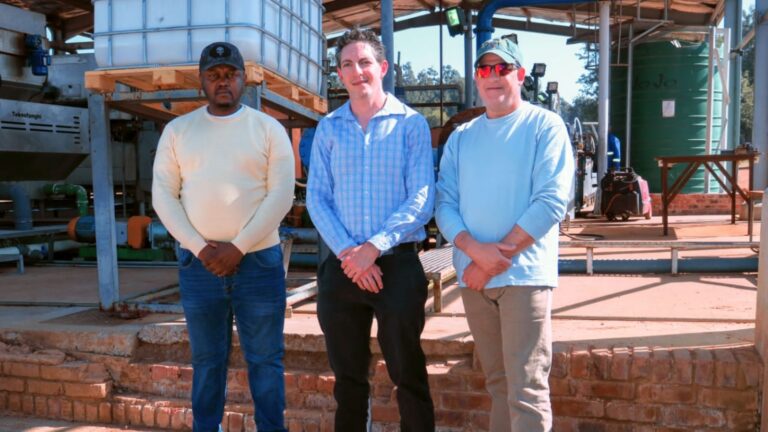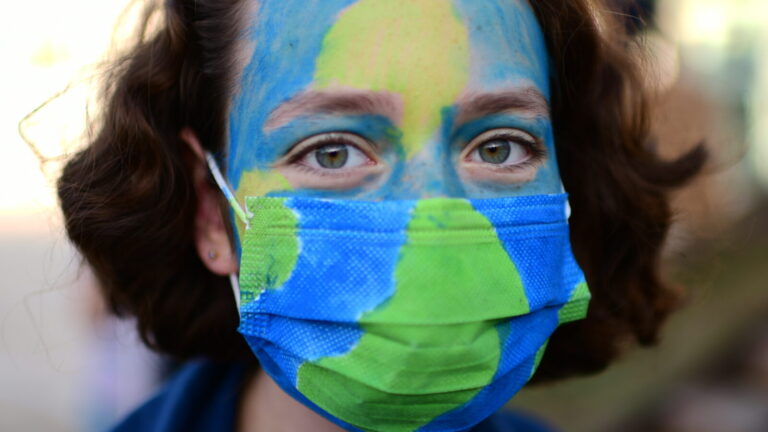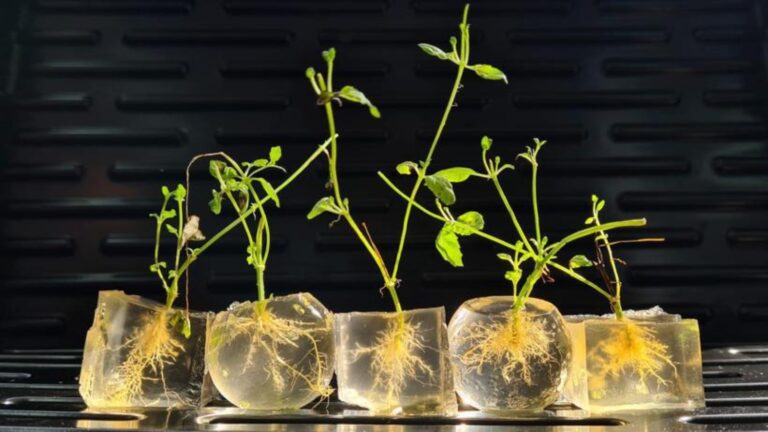Within three months, South Africa’s capital city and biggest tourist destination may become the first major city in the world to run out of water.
The four million residents of Cape Town will have their water supplies cut off unless the city manages to reduce daily consumption by 20 percent. The “Day Zero” shutdown is expected for mid-May 2018 and is recalculated every week based on current reservoir capacity and daily consumption.
The crisis is mostly attributed to three years of unprecedented drought that has dried up the city’s six-dam reservoir system. If the dams fall below 13.5% capacity before the start of the rainy season in June, taps will be turned off and residents will have to line up at municipal points to collect their allotted 25 liters per day. This amount is about a quarter of the water used by the average American daily.
As “Day Zero” approaches, it seems the whole world is watching to see what Cape Town does.
In Israel, a country with its own history of water struggles and triumphs, experts are weighing in on how Israeli innovation and mindset may be able to help Cape Town and other water-scarce locations avoid future disasters.
“We are known around the world for being experts in water and having developed the most advanced technologies to cope with water scarcity,” says Prof. Eilon Adar, director of Israel’s Zuckerberg Institute for Water Research at Ben Gurion University.
“But it’s not necessarily so that these technologies can be adapted as is and save the rest of the world. Every society has its own constraints – social, physical, natural – and the most we can do is to try and adapt the Israeli concept to see which technologies or innovations can be tailored for the local needs.”
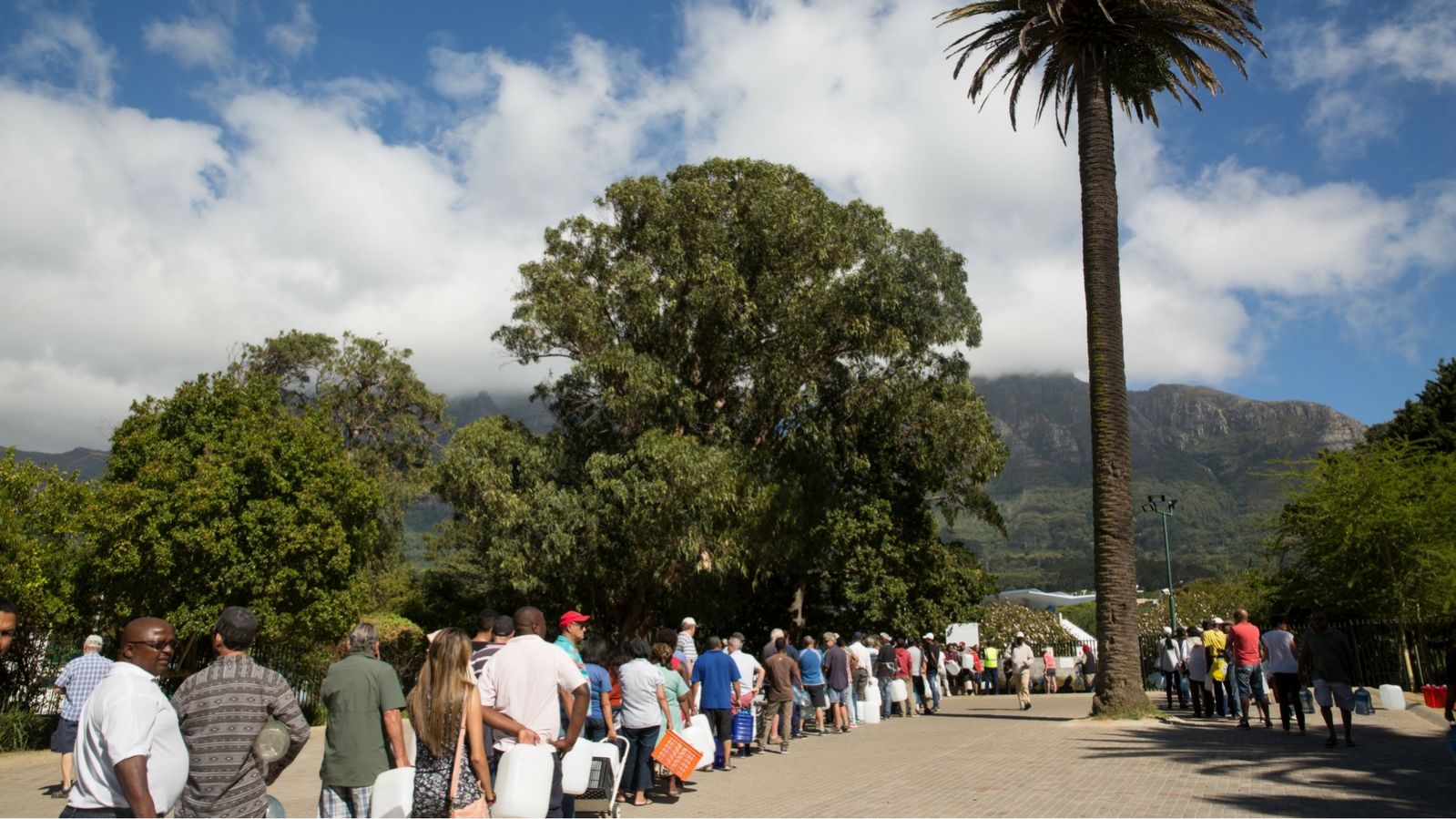
The road to disaster isn’t set it stone
According to Seth Siegel, author of Let There be Water: Israel’s Solution for a Water-Starved World, water problems like the one in Cape Town are almost always avoidable.
“These problems tend to come at you pretty slowly; therefore you have lots of lead time to fix the problem or prepare your population,” said the New York-based author, activist and businessman. In order to arrive at the point of humanitarian crisis, he says, “you have to have a willful ignoring of your problems.”
His book cites factors like population growth, rising affluence, climate change, pollution of water sources, and leaky infrastructure as drivers of the world’s imminent water crisis. “The water crisis isn’t a ‘developing world’ problem reserved for international aid organizations operating in faraway locales,” he writes.
While many places, like São Paulo, California and Cape Town, have reached crisis points in recent years, Israel serves as a model to show that dwindling supplies of natural water sources and declining rainfall do not always determine a country’s destiny.
A desert nation keeps its head above water
From its inception, Israel has had to build its nation without abundant water or energy. Despite its arid climate, fast-growing population, and history of droughts, Israel today experiences a water surplus.
“If there was no other dry place in the world that had mastered this problem, I would say that we’re all kind of in a tough situation,” says Siegel. “Israel is so successful in its water management that it has enough water for everybody, it’s self-sufficient in fruits and vegetables, which takes a lot of water, and it has so much extra water that it can export water to its neighbors.”
Israel’s national water grid, established in 1964, gave the country the ability to bring water from a relatively wet place (the north) to a relatively dry place (the south), something that many countries today still do not do. The grid now integrates surface water, groundwater and desalinated water into the same pipeline, which Adar says is unique to Israel. This infrastructure has helped Israel withstand drought and expand into desert areas once thought uninhabitable.
Yossi Yaacoby, director of WaTech innovation center for Mekorot, Israel’s national water-management consortium, agrees that Israel’s dynamic planning capabilities have helped to secure Israel’s water future.
There is not one single solution for the water problem, he explained, but rather multiple layers of solutions and policies that work together. “If you rely on natural water sources without any storage capability, without investing, and without understanding that water has a price, you will not achieve any target of water supply. And this is the main problem,” he said.
An ‘all in’ approach
Israel’s use of innovative irrigation, desalination, wastewater recycling and reuse, and leak-detection technology has been credited with helping the country become a water superpower. It is the extent to which these innovations have been implemented that sets Israel apart, rather than the technology itself.
For example, drip irrigation is the norm in Israel, where the landscape consists of 60% desert. First developed in 1959 by Israeli inventor Simcha Blass, the method has been proven to save water, enhance yields and reduce energy consumption. Today it supplies 75% of irrigated agricultural fields in Israel with water. In comparison, only 5% of the irrigated fields around the world utilize drip-irrigation technologies. Many countries, including the US, still rely on wasteful flood-irrigation methods.
When it comes to wastewater treatment, Israel’s recycled wastewater ratio is four times higher than in any other country in the world, with 85% of the treated water available for agricultural uses. Currently the US recycles about 9% of its wastewater. Yaacoby says that a target average of even 20% reclaimed wastewater in the US would be a real revolution.
Israel has also invested heavily in desalination plants on the Mediterranean shore. There are currently six plants, two of which are the largest in the world, producing nearly 500 million gallons of freshwater from salt water every day.
Desalination has allowed Israel to get ahead of droughts and provide a substantial supplement to the water supply, creating more water for agriculture, replenishing its natural water sources, and supplying water to its Palestinian and Jordanian neighbors.
“The global water crisis is unlikely to be solved without widespread use of desalinated water,” writes Siegel. “Even water-rich locations like New York City may decide to build a desalination plant as a backup for security or environmental reasons.”
Two desalination plants are being built in Cape Town, each expected to provide 7 million liters of water per day. However, experts say it is unlikely that residents will see water from these plants before “Day Zero.”
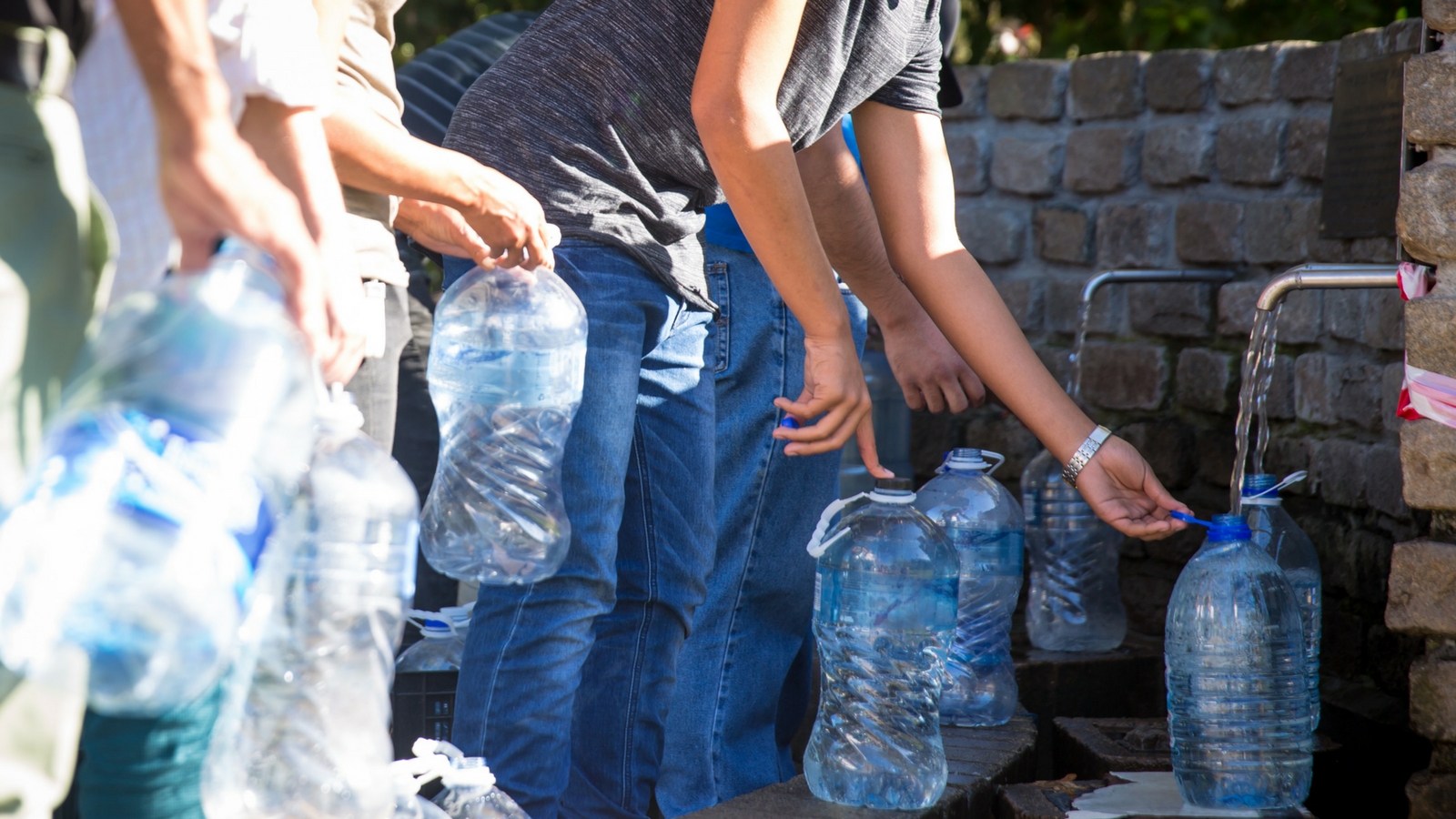
“Cape Town started designing or planning for this two and a half years ago, and now they are still in the middle of construction. It’s too slow and too late,” said Adar, who traveled to South Africa in 2016 to take part in a series of water-focused events organized by the Israeli embassy.
Although seawater desalination comes with a relatively high price tag, Adar reminds that paying more for water is better than having no water at all.
“For countries considering investing in the infrastructure, it has to be assessed with reference to a critical value of water,” he says. “This is the cost to produce alternative water when you don’t have enough. And it’s a matter of willingness to pay.”
Changing attitudes toward water
Technology aside, one of the most unique aspects of Israel’s approach to water is its understanding of water as a commodity.
Unlike in the US, where water is a personal property right, a series of laws passed in the mid-1950s made water ownership in Israel public. This gave the government the power to manage, regulate, price and allocate water in accordance with the best needs of the country.
“Around the world, the price of water is nearly universally subsidized,” explains Siegel. “What we know from basic economics is that when people get things for free or at a discounted price, they don’t value it the same way.”
By charging the real price of water, Israel has gained a nationwide interest in saving water and a culture that values every drop.
“Somehow, although it is a natural resource, we have all agreed to put a price tag on oil and gas, which means that we refer to it as a commodity,” says Adar. “However almost no one in the world but Israel treats water as a commodity as well.”
Adar places equal importance on education. “Without any doubt, education is the key,” he says. “If you take an eight-year-old boy or girl and begin to educate them on conservation, in five or six years’ time they are teenagers and in 10 years they are adults.” Cultural attitudes towards water can change, but it may take at least a generation.
Creating a global impact
Currently more than 150 countries actively use Israeli solutions – whether technology, training, or technical assistance – to help address their water problems. Despite offers of assistance years ago and more recently by Israeli Ambassador to South Africa Lior Keinan, there has been no formal engagement between Israel and South Africa regarding the looming water crisis.
However, the South Africa-based Legacy Water Solutions management consulting company is actively considering various Israeli companies with which to partner.
“We attended WATEC in September 2017, where we had an opportunity to attend the sessions and visit the expos. We also had a delegation to Israel in March 2017 where we visited Ben-Gurion University in the Negev, where Prof Adar hosted us. He exposed us to many Israeli products and technologies,” Michelle Harding, Legacy Water Solutions managing director, tells ISRAEL21c.
As Siegel notes, not everything Israel has done in terms of water conservation and management will be relevant everywhere or to everyone. There will always be differences in topography, rain patterns, natural water resources, government priorities and spending, but every country has something to learn from some part of what Israel has done.
“If nothing else, Israel’s focus on water and its priority in the national consciousness can be an inspiration to leaders and engaged citizens everywhere regardless of geography or affluence,” he writes.
Though numerous seasons of above-average rainfall will be necessary for Cape Town’s water supply to return to normal levels, South Africa and other countries can take steps now to get ahead of future disasters.
“Every country should think about how all of their plans and infrastructure can be resilient in extreme conditions,” says Yaacoby. “It’s very important that we share ideas between countries in order to be ready for any disaster.”
Yaacoby hopes that soon Israel will be able to offer the world even more water, particularly in times of natural disaster.
“Whenever there is a crisis in the world, we are sending an airplane from the Israeli army with all of the equipment in order to save lives,” he says. “We are now thinking that another airplane should arrive with water solutions in order to help the people in those places to get fresh water and sanitation. It should be part of our mission.”
While it would have been great if everyone had started planning for a water-scarce future ahead of time, Siegel says it’s not too late to begin now. “There’s a vicious cycle for those countries that fail to develop their water supply, but there’s also a virtuous circle for those who do,” he says. “People who focus on good water will have far better outcomes.”




